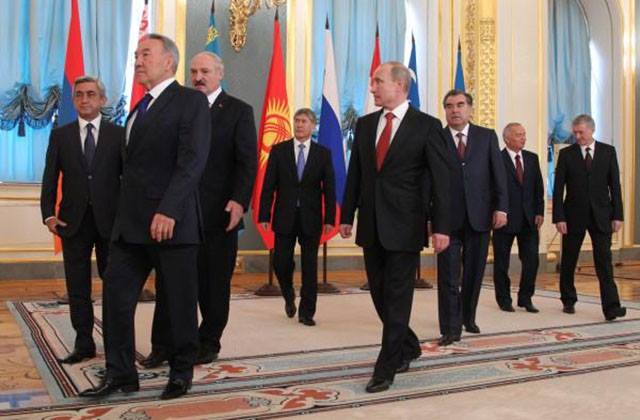What if Armenia didn’t Join EEU?

This question has been repeatedly raised from 3 September 2013, after the officially statement that Armenia is becoming a member of Eurasian Economic Union (EEU). Of course, replies to them were more as well. However, they have mainly been on political or geo-political platform and mostly referred to Armenia’s security issues.
However, economically this question hasn’t been answered yet, i.e. what did Armenia gain from membership to EEU? And what would condition of economy be if not engaged with it?
Of course, statistics has long ago concluded indices for the first year—2015. We know on which directions growth and decline have been recorded. However, assessing to which extent membership to EEU is linked to the growth or the decline, is rather a complicated task.
It became clear this January that RA government, represented by the Ministry for International Integration and Reforms, intends to clarify EEU implications on Armenia’s economy in the first half of 2015. The survey was ordered to “Avag solutions” Ltd, owner and head of which is Vahram Avanesyan, formed Minister of Economy. “Avag solutions” Ltd was paid AMD 3 million 955 thousand to implement the survey.
Vache Gabrielyan, Minister of Economic Integration and Reforms, in an interview with reporters, informed yesterday that the report is already ready and is available on the Ministry’s website. V.Gabrielyan made some observations grounded by the report, linked to EEU membership implications on exports and transfers.
The report on “Assessment of separate implications of EEU membership on Armenia’s economy as per first half of 2015” is a 46-page document, which assesses impact of EEU to the following directions: export, based on comparison of export tendencies of other countries with similar economy, as well as:
– Uncovering of microeconomic changes,
– Import on the following dimensions:
- General tendencies of import reorientation and private influence regarding products like gas, petrol, wheat and diamonds,
- Fiscal impacts, as a result of import regime change.
-Investments,
-Transfers.
Not to overwhelm the reader with specialized formulations, more significant conclusions will be singled out.
Firstly, it’s worth touching upon export. Issue, set before experts, was as follows: what would export from Armenia be like if it weren’t a EEU member country? Here the problem was complicated in a sense, that being a non-member country is available by two options—adhere neutral position, or pursue a policy of rapprochement with the EU. Accordingly, to answer the “if” question, actual developments of export in other post-Soviet states, having features similar to Armenia’s economy, Georgia and Moldova have been selected for comparison.
It revealed that, for instance, among comparable countries, insignificant reduction of export to Russia, both relatively and exclusively, has been recorded in Armenia. On the other hand, accordint to the survey, negative developments in Russia’s economy directly impact export volumes from Armenia, Moldova and Georgia, and these implications are rather close to one another, anticipating similar reflections towards Russia’s economic decline in all the three countries.
Authors of the analysis regarding export came to the following conclusion: on account of actual implementation of Armenia’s export, membership to EEU from this perspective may be a crucial factor to avoid more negative developments, i.e. export didn’t gain from engagement with EEU, however, if we didn’t, the picture would be even more disappointing.
Regarding import analysis an issue has been put forward—assessing import reorientation tendencies, by separate productions, as well as by possible price implications. Authors of the survey fact that generally implications of membership to EEU on import reorientation aren’t observed yet. On the other hand, there are serious changes regarding separate products. For instance, business import in the period of 2014-2015 has been greatly implemented from Russia, reaching to 67%, meanwhile yet in 2012, Russia’s share in import comprised only 26%. It’s difficult to say whether it’s good or bad. In any case, conductors of the survey assure that price for petrol imported from Russia has considerably dropped.
Of course, natural gas attached special attention. “If Armenia’s wasn’t a EEU member, currently, price for gas import would comprise as much as in 2013—USD 280 per m3,” the document reads.
We have benefitted from import customs duties. Armenia gained USD 88 million from EEU customs duties in the period up to August 2015, and under the conditions of not joining the EEU, customs duties would comprise about USD 70 million upon actual volumes of import for 2015.
The picture isn’t that enthusiastic.
For instance, dynamics for investments by foreign countries isn’t favorable for Armenia. The document cites that involvement in EEU didn’t positively affect that tendency. As per results of the first half of 2015, they have dramatically fallen, both FDIs in general, and Russia’s weight in them. According to the result throughout January-June 2015, FDIs have deceased by about 60% towards the same period in 2014, and investments from Russia—by 90%. Conductors of the survey sincerely confessed that, naturally, integration expectations bring forward additional interest towards the country, positively influencing on investments as well. However, in case of Armenia likewise implication after membership to EEU wasn’t observed.
Despite this authors didn’t intend to discredit EEU, and in the end, mentioned that reduction of investments can’t edify of negative impact, as it has repeatedly been mentioned in the document that threshold of Armenia’s membership and start coincided with strictly negative developments recorded in Russia’s economy.
Just a few words on transfers. It’s mentioned in the research that in the first half of 2015 Armenia, as compared to the same period of the previous year, has lost more than 40% of money transfers. The fact that transfers of EEU member countries Belarus and Armenia have been reduced more, than those of Azerbaijan and Kyrgyzstan, according to the conductors of the survey, may give ground for a hypothesis that, that membership to EEU hasn’t developed a more beneficiary environment regarding transfers.
In the conclusions conductors of the survey stated that upon results of the first 6 months of Armenia’s membership to EEU, actual economic condition is considered problematic, however, the observed tendencies are hardly conditioned by integration processes.
Russia’s economic crisis has an immense impact on countries of the region, thus practically, it’s impossible to isolate those implications.
At the same time it’s mentioned that Armenia’s rather rapid process of membership to EEU requires proceeding with the process of approximation of policies and regulations, which will provide Armenia’s businessmen and investors the opportunity to actually feel positive implications of the membership.
By Babken Tunyan

























